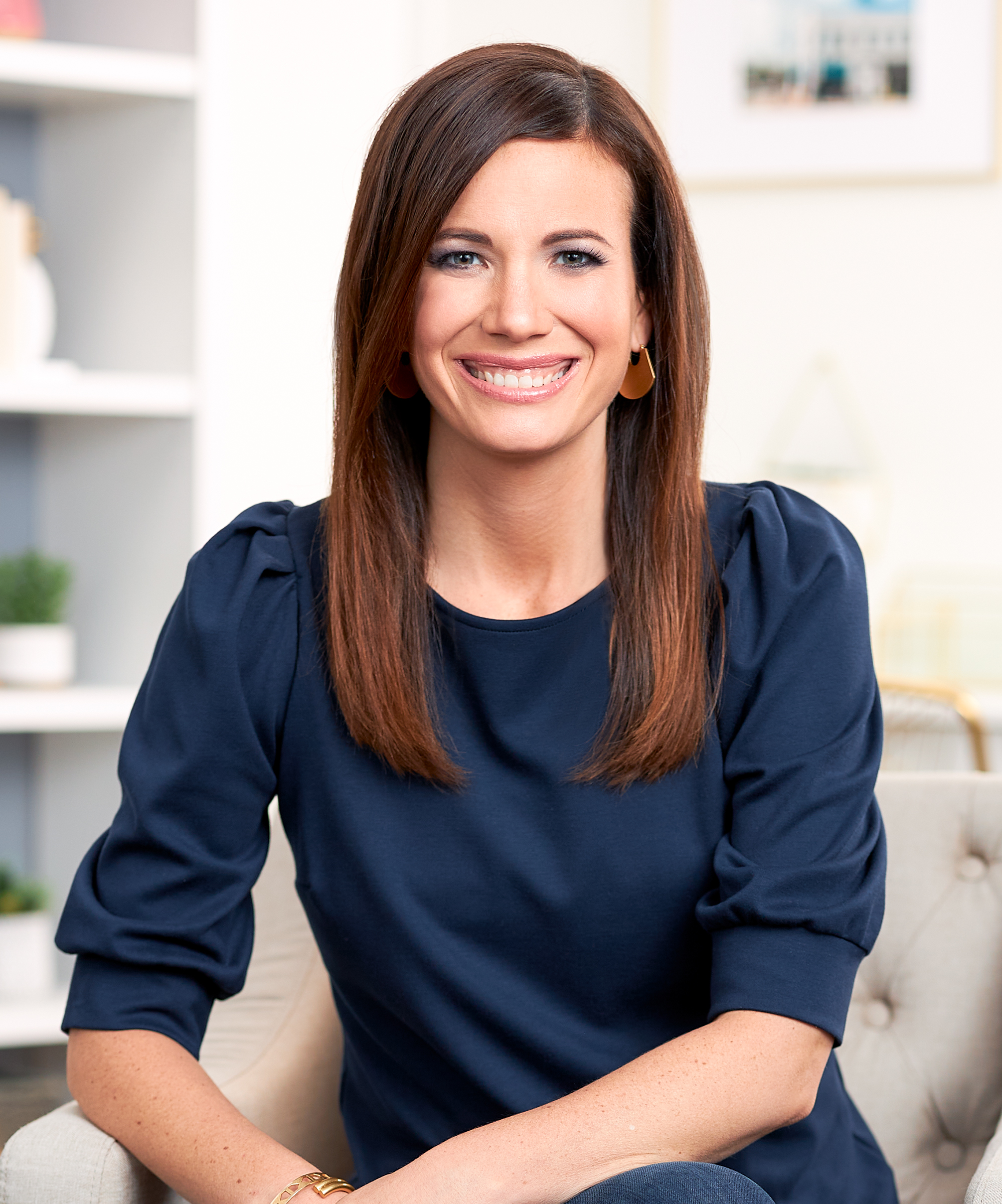Have you ever wondered what makes some people successful with money and others not so successful?
I love the old quote by Henry Ford, “Whether you think you can or think you can’t, you’re right.” Our thoughts and behavior have way more to do with our success than anything else. And our attitude about money specifically is influenced a lot by the household we grew up in. This is true regardless of whether we grew up with one parent, two parents or relatives.
For example, my money story began during the hardest part of my parents’ money journey. I was born in April, and they filed for bankruptcy in September of the same year. They hit rock bottom and it took a good five years for them to climb out of that hole—right around the same time as my earliest memories.
I don’t remember the actual bankruptcy, but I do remember the aftermath and what became a new way of living with money for our family. I had a front-row seat to their open and honest conversations, and I watched as they budgeted what little money they had. We shopped at consignment stores and never went on vacation. My parents’ perspective on debt, budgeting and saving deeply impacted my own perspective.
Your story may not involve something as drastic as bankruptcy, but the way your parents handled money during your childhood made an impact on you whether you realize it or not. You may handle money a lot like your parents did when you were younger, or you may have chosen to do the exact opposite of what they did. Either way, your childhood household was your money classroom. Sometimes our money classroom leads to good habits and healthy views on money that help us—and some lessons we wish we could unlearn.
Money Is Communicated Emotionally and Verbally
In your money classroom, there were two ways you learned about money: what your parents communicated emotionally and what they communicated verbally.
You experienced the emotional side through the good or bad vibes you got about something even if you couldn’t pinpoint exactly why. When emotional communication is positive, we feel calm, and when it’s negative, we feel stressed. This type of communication is as powerful—if not more powerful—than verbal communication.
The verbal side is about what was (or wasn’t) said in our homes. Some households were verbally closed. Your parents didn’t talk about money in front of you. Maybe they didn’t talk about it at all. There was never any discussion around the dinner table about debt, budgeting or investing. Plus, you knew not to talk about some things, like money, religion, politics, sex—or all of the above—and so you never did. There was no discussion, no conflict, no give-and-take—just an absence of communication.
What Was Your Money Classroom?
Based on those different styles of communication, in my years of teaching personal finance, I’ve identified four money classrooms. I wrote about these classrooms in my book, Know Yourself, Know Your Money.
The four money classrooms are:
The Anxious Classroom
Emotionally stressed and verbally closed.
The Unstable Classroom
Emotionally stressed and verbally open.
The Unaware Classroom
Emotionally calm and verbally closed.
The Secure Classroom
Emotionally calm and verbally open.
Let’s dig into each of these classrooms.
The Anxious Classroom
If you grew up in the Anxious Classroom, you probably observed your parents’ money habits rather than hearing them discussed. You probably felt tension rather than hearing an argument. You might not have felt free to ask questions about money.
The tough reality of living in this environment is not just the lack of information; it’s also the heightened emotional state in the home—either in general or specifically around the topic of money. Because of that, you might have some fear around money: fear of talking about it, fear that you don’t know enough about it, or fear of it running out.
If it’s hard for you to face your finances, I want to encourage you to create a tactical, detailed monthly plan for your money. That’s all a budget is—it’s a plan—and it will remove the fear of the unknown. Be intentional and write out exactly where you want your money to go. Once you set your budget, it will tell you what you can and can’t do with every dollar—and give you the direction you need to move forward with confidence.
The Unstable Classroom
If you grew up in the Unstable Classroom, you’ll recognize it right away because you learned about money by seeing and hearing. In these households, money was a source of conflict. Parents argued about it between themselves, with the kids, with extended family, sometimes even with strangers. The arguments may have been public or private.
Today, you might feel fearful, anxious and unloved because you hear or heard “no” a lot from your parents (usually in a short-tempered way). Growing up in this household could’ve felt like an emotional roller coaster because the emotions would swing unexpectedly between the negative and positive.
What you need to know is that the topic of money doesn’t have to feel chaotic. You can learn how to talk about money in healthy, stable ways. The fact that you’re reading this article shows that you have the maturity to try to handle money the right way. And the Ramsey Baby Steps provide a plan for avoiding debt and building wealth while addressing money in a healthy, productive, and even exciting way!
The Unaware Classroom
If you grew up in the Unaware Classroom, you probably didn’t worry about money. Maybe you didn’t even think about money much at all. Ignorance is bliss for some things, but it’s definitely not true when it comes to money.
Being raised in a household where no one ever talked about money is very common, but to make wise decisions with money, you have to know the whole picture—the good, the bad and the ugly. If you were in the Unaware Classroom, everything seemed totally fine. You had no idea about the state of your parents’ money situation and didn’t have to worry about it. Money just wasn’t on your radar.
If money was never talked about, now’s the time to start talking about it. If you’ve never been taught how to do a proper budget, you don’t just intuitively know why it’s important and how it can help you achieve your goals. But don’t beat yourself up for what you don’t know, and definitely don’t just avoid your finances altogether. Creating a budget, saving for a rainy day, and planning for the future might feel really hard at first, but it’ll be worth it. Your money and your future self will thank you for it!
The Secure Classroom
If you grew up in the Secure Classroom, you grew up in the ideal money classroom. Emotionally calm and verbally open environments aren’t perfect, but they do reflect homes where parents practice healthy money habits and where kids feel the most safe and secure.
In this classroom, money doesn’t feel stressful because the parents know how to manage it well and are in control. Money was talked about often and openly. There was calm, intentional decision-making around money. There was mutual respect between your parents, and they were connected and on the same page. In a really perfect world, they may have even brought you in on some of the budgeting decisions or asked you to be a part of the discussion!
Your parents didn’t have to have a lot of money to be in the Secure Classroom, but they were managing what they had well. Don’t let their success allow you to slip into the belief that it was easy for them. Your standard of living won’t automatically be the same as your parents’ unless you’re as intentional and smart about it as they were!
Financial expert Larry Burkett used to say that couples spend the first five to seven years of their marriage trying to attain the same standard of living as their parents—only it took their parents 35 years to get there. Remember that your parents worked hard to get where they are, so it will take time for you to get there too.
You Can Change Your Financial Future
Now that you know where your money beliefs, fears and habits come from, you can do something about it. Money is a tool, and regardless of where you’ve been, you can use that tool to chase your dreams, to create opportunity, give generously, and change your family tree. I believe you can take control of your money and create a life you love.
If you want to learn more about your money tendencies and how to create habits to win with money, check out my new book, Know Yourself, Know Your Money.
Rachel Cruze is a two-time #1 national best-selling author, financial expert and host of The Rachel Cruze Show. Since 2010, Rachel has served at Ramsey Solutions, where she teaches people to avoid debt, save money, budget and how to win with money at any stage in life. She’s authored three best-selling books, including Love Your Life, Not Theirs and Smart Money Smart Kids, which she co-wrote with her father, Dave Ramsey. Her latest book Know Yourself, Know Your Money: Discover WHY You Handle Money the Way You Do and WHAT to Do About It will release in January 2021.
Follow Rachel on:
Twitter @RachelCruze
Instagram @rachelcruze
Facebook @Rachel Cruze
YouTube @Rachel Cruze
















0 Comments